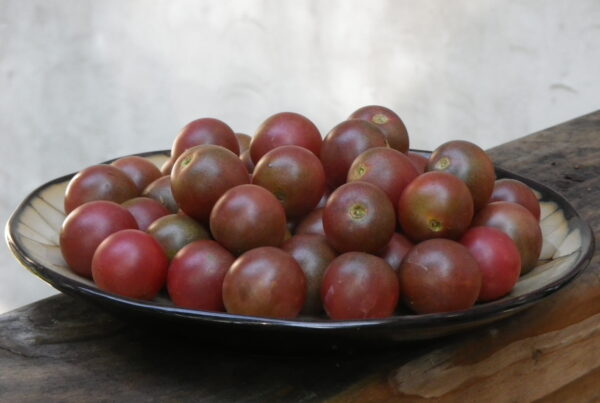TAKE ACTION
Seeking Co-sponsors for the Agriculture Resilience Act
Ask our Senators and your Representative to join in supporting the ARA!
As Congress begins to lay the groundwork for the next five-year Farm Bill, Representative Chellie Pingree is once again introducing the Agriculture Resilience Act, a roadmap for greatly expanded USDA research, conservation, rural development, and other investments in building a more climate resilient and climate-friendly agriculture. The Act emphasizes a wide range of strategies including soil health, advanced grazing management, better manure management, perennial agricultural systems, and minimizing food waste with the goal of rendering the entire US food and agricultural system climate-neutral or better by 2040.
Our current goal for the ARA is to get as many of its key provisions as possible into the 2023 Farm Bill. National Sustainable Agriculture Coalition (NSAC) offers advocacy resources to help you persuade Members of Congress to get behind this vitally important piece of legislation.
POLICY NEWS
Federal Appropriations for FY 2022: Good News for Sustainable Agriculture
SARE program funding reaches $45 million
On March 15, President Biden signed into law the Consolidated Appropriations Act of 2022, which set funding levels for “discretionary” programs for Fiscal Year 2022. Among these program are several of importance to farmers and advocates for a sustainable and regenerative agriculture. These include:
- The Sustainable Agriculture Research and Education (SARE) program, which funds farmer-driven research, received its highest-ever funding level, $45 million. Here in Virginia, SARE has supported the excellent plant breeding work by farmer and VABF member Edmund Frost of Common Wealth Seed Growers, and in past years, mulching and nutrient management studies conducted by VABF, and training in organic systems for Extension, NRCS, and other agricultural professionals.
- The Grazing Lands Conservation Initiative (GLCI) received $14 million in technical assistance funding – its first funding since 2008. GLCI supports collaboration among livestock farmers, conservation groups, and USDA Natural Resources Conservation Service (NRCS) to enhance conservation outcomes of grazing management.
- Increased funding for the Local Agriculture Markets Program (LAMP), the Farmers Market Nutrition Program, and Office of Urban Agriculture.
For more information, see the NSAC blog post on the 2022 Appropriations package.
USDA Funds Risk Management Education Projects
Sustainable agriculture organizations receive funding
With growing climate and market volatility ratcheting-up pressure on the nation’s farmers, the USDA’s Extension Risk Management Education (ERME) program has offered vital assistance through some 200 small grants over the past two years to a diversity of farmers’ groups and nongovernmental organizations to help producers better manage these risks. Several National Sustainable Agriculture Coalition (NSAC) member groups have received funding for innovative projects in risk management education including strategies from Whole Farm Revenue Protection (insurance for diversified agricultural enterprises) to soil health improvement for greater resilience.
RESOURCES and FUNDING OPPORTUNITIES
Virginia Agricultural Best Management Practices Cost-Share Program
The Virginia Agricultural Best Management Practices Cost-Share Program (VACS) offers cost-share on more than 70 conservation practices for crop, livestock, and poultry producers seeking to adopt Best Management Practices to prevent erosion, improve soil health, protect streams and ground water, and enhance wildlife habitat. Among the practices supported are cover cropping, setting pastures up for rotational grazing, and nutrient budgeting and management.
If you would like to apply for VACS support, or want to learn more about the program, ask at your local Soil and Water Conservation District. For contact information for your district, visit https://www.vaswcd.org.
Technical Assistance with Nutrient Management on Small Farms
Virginia Tech and the Virginia Department of Conservation and Recreation
Are you farming a quarter-acre or more, up to 400 acres or fewer than 200 dairy cattle, and seeking technical assistance with nutrient management to optimize production, reduce costs, and protect water quality and soil health? This program may be helpful. The Small Farm Nutrient Management Team includes nutrient management specialists Tad Williams for dairy and small farms (540-290-3602; taw1776@vt.edu) and Tammy Holler for horticulture and small ruminants (804-229-2730, tammyh3@vt.edu). Services include nutrient management planning, soil testing and interpretation, a pre-sidedress soil nitrate test (PSNT) that can save money and water quality by letting you know when you don’t need to add so much nitrogen, and equipment calibration. While this may sound a lot like conventional farming nutrient management, it can be of mutual benefit for certified organic, transitioning-organic, and other biological farmers to take part in this program.
$19 million available for Beginning Farmer and Rancher Training
Application deadline May 19
The USDA announced $19 million in funding available through the Beginning Farmer and Rancher Development Program (BFRDP), especially for nonprofit organizations, community-based organizations (CBOs), and school-based agricultural educational organizations that have experience educating and training beginning farmers. Supported activities include workshops, educational teams, and training, outreach, and technical assistance to help beginning farmers and ranchers successfully launch, build, and manage thriving farm and ranch enterprises. Click on the link for more information and how to apply.
New Resources for Small-scale Meat Processors
The USDA Food Safety and Inspection Service (FSIS) has announced new resources to help smaller-scale meat processing businesses meet food safety and inspection requirements in a more cost-effective way that reduces burdens on small enterprises. For more information see the NSAC blog on FSIS resources.






